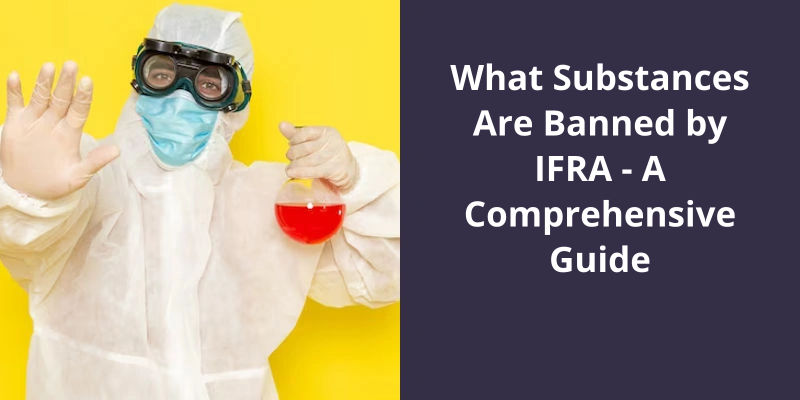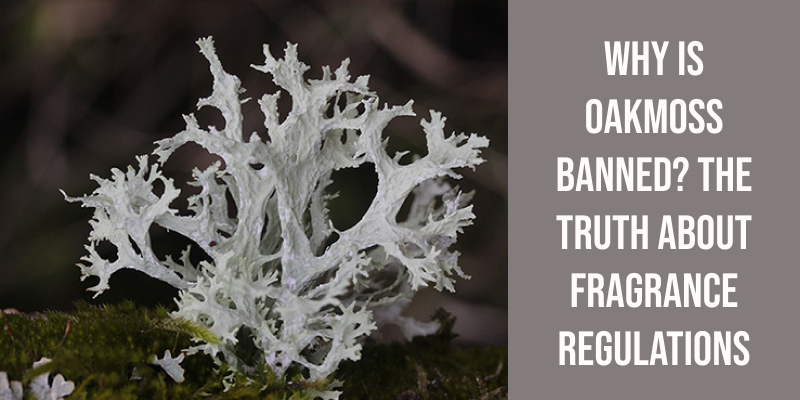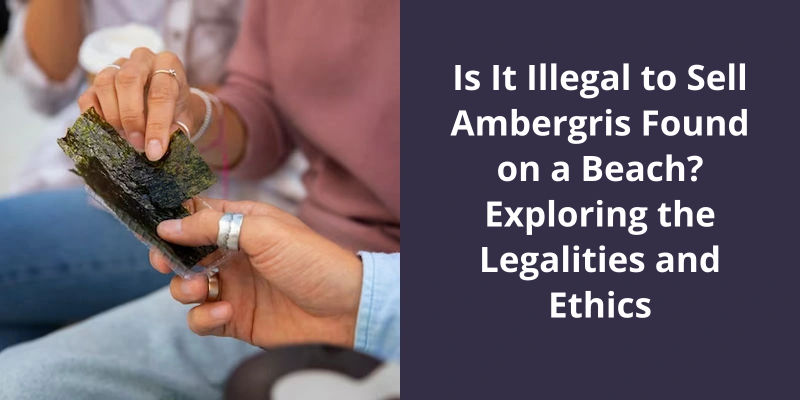The International Fragrance Association (IFRA) has put in place a list of substances that are banned from use in fragrances due to their potential negative impact on consumers’ health. These include natural essential oils like Costus oil, Oakmoss absolute, and Tree moss absolute, along with synthetic compounds such as Lyral, Atranol, and Chloroatranol. IFRA also restricts ingredients like Citral, Farnesol, and Geraniol which may trigger allergies. Furthermore, certain musks perceived as harmful to the environment, and materials harboring potential carcinogenic properties, like Methyleugenol and Estragole, are prohibited. The banned substances list is dynamic and frequently updated as per new scientific research and safety data.

What Ingredients Are Banned in Perfume?
One common question that arises in the realm of perfume is what ingredients are banned in the industry. The answer lies with the International Fragrance Association (IFRA), which serves as the global representative body for fragrances. Their primary goal is to ensure the safe use of fragrances through regulation. Due to the toxicity of certain essential oils, IFRA has banned the use of many ingredients that may pose potential health risks or react adversely with other chemicals.
One such ingredient is Action Cade, which is derived from juniper berries. It was banned because it contains cancer-causing agents that pose a risk to human health. Similarly, calamus oil is another banned ingredient that features a toxin called asarone. This substance can cause irreversible liver damage if ingested or inhaled. The use of fig leaf absolute and horseradish oil have also been prohibited due to their potential to react with chemicals in a way that could be harmful.
Mustard oil, black mustard, stryax gum, and sassafras oil are also banned for different reasons. Mustard oil and black mustard contain high levels of a compound called erucic acid, which can lead to heart disease. Stryax gum, popularly used in incense and perfumes, is banned due to the presence of allergens that can trigger reactions in those who’re sensitive to them. Sassafras oil, on the other hand, contains a carcinogenic substance called safrole, which has been shown to be toxic to humans.
Rather, it’s a precautionary measure to minimize the potential risks associated with certain types of ingredients. Additionally, IFRA continues to research and monitor the safety of all fragrance ingredients to ensure the continued safe use of perfumes and other fragrances.
The International Fragrance Association plays a crucial role in regulating the safe use of fragrances and identifying potentially problematic ingredients. With their help, the perfume industry can continue to thrive while providing consumers with high-quality products that are safe to use.
With the increasing awareness and concern over the safety of fragrance ingredients, the International Fragrance Association (IFRA) has taken the lead in implementing regulatory standards to ensure the safe use of fragrances. These standards are known as IFRA restrictions, and they aim to ban, limit, or set criteria for the use of certain ingredients in fragrances. These restrictions are based on scientific evidence and consumer insights, and they’re constantly evolving to keep up with the latest research and developments in the industry.
What Are IFRA Restrictions?
IFRA restrictions refer to the set of guidelines or regulations established by the International Fragrance Association (IFRA) regarding the use of various ingredients in fragrances. These restrictions are based on scientific evidence and consumer insights, with the aim of promoting the safe use of fragrances and protecting public health.
These can include essential oils, synthetic fragrance compounds, and other additives such as preservatives and stabilizers. The restrictions may ban certain ingredients altogether, limit the amount of certain ingredients that can be used, or specify certain criteria for their use.
These standards include criteria such as stability, reproducibility, and sensory characteristics, among others. Compliance with IFRA restrictions is often a prerequisite for membership in the association.
Conclusion
In conclusion, IFRA has taken a strict stance in banning certain substances that have the potential to react with other chemicals leading to a hazardous outcome. The inclusion of various oils such as calamus oil, fig leaf absolute, and horseradish oil in the banned list highlights this fact. The addition of mustard oil, black mustard, stryax gum, and sassafras oil reiterates IFRA's commitment towards ensuring safe practices in the fragrance industry. Furthermore, the limitation of certain oils such as bitter orange oil, cassia oil, Chinese cinnamon, and cinnamon bark portrays the meticulous approach of IFRA towards ensuring the safety of consumers. The efforts of IFRA will go a long way in assuring consumers of safe and reliable fragrance products.





